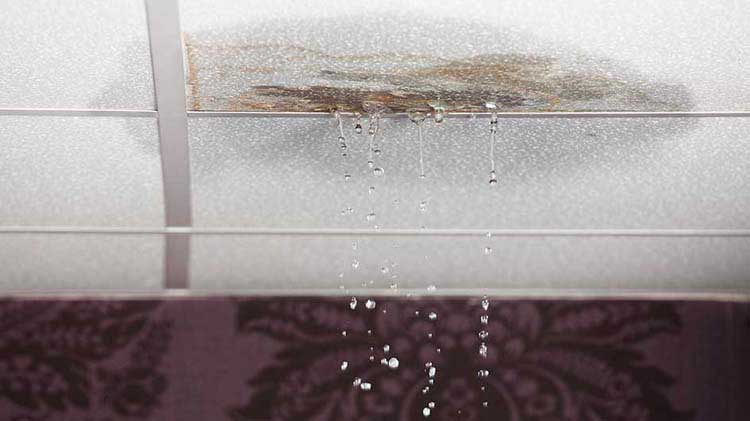Your Residential Most Frequent Leak Triggers: Examination
Your Residential Most Frequent Leak Triggers: Examination
Blog Article
We've noticed this post relating to Common Water Leaks In House below on the internet and accepted it made sense to discuss it with you in this article.

Leaks not just cause waste of water however can additionally cause unnecessary damages to your house and also promote undesirable natural growth. By looking and also recognizing for daily circumstances that cause leakages, you can secure your house from future leaks and also unnecessary damages.
Instant temperature modifications.
Severe temperature modifications in our pipelines can cause them to increase as well as get all of a sudden. This growth as well as tightening might cause splits in the pipes, specifically if the temperature are listed below cold.
Rusty water systems
This may be the cause of discoloration or bending on your water pipelines. If our plumbing system is old, take into consideration changing the pipes considering that they are at a higher risk of corrosion than the newer versions.
Defective Pipeline Joints
The point at which your pipelines link is often the weakest link in the waterline. Pipeline joints can degrade in time, causing water leakages. Regrettably, the majority of pipe joints are not easily noticeable. If you have noisy pipelines that make ticking or banging sounds, particularly when the hot water is activated, your pipeline joints are most likely under a great deal of pressure. It is recommended to have your plumber check your system once a year.
Elbowing in roots
A lot of water leaks begin outside your house instead of inside it. If you notice an abrupt reduction in water pressure, claim in your tap, take time to head out and analyze your yard. You could discover damp patches or sinkholes in your backyard, and that could imply that tree roots are attacking water lines causing water to permeate out. You can have your plumber check for invasion, specifically if you have trees or shrubs near your home.
Poor Water Connectors
Sometimes, a leak can be brought on by loose hose pipes and pipes that supply your home appliances. Typically, shifting is what creates the loose water Links. You might locate in the case of a cleaning machine, a pipe may spring a leak as a result of shaking during the spin cycle. In case of a water connections leakage, you might notice water running directly from the supply line or pools around your devices.
Clogged Drains
Blocked drains pipes might be annoying as well as inconveniencing, yet they can in some cases wind up causing an overflow bring about rupture pipes. Keep getting rid of any products that might drop your drains that can clog them to prevent such inconveniences.
All the above are reasons for leakages yet not all water leakages arise from plumbing leaks; some leakages could come from roofing leaks. All leakages should be repaired quickly to avoid water damages.
Leaks not only create waste of water yet can also cause unneeded damages to your residence and also promote undesirable natural development. By looking and recognizing for daily circumstances that cause leakages, you can shield your house from future leaks and also unneeded damage. Today, we will certainly look at six leakage triggers that may be causing your pipelines to drip.
At times, a leakage can be caused by loosened pipes and pipelines that provide your appliances. In instance of a water links leak, you might discover water running straight from the supply line or pools around your appliances.
How To Check For Water Leak In Your Home
How To Check for Leaks
The average household's leaks can account for nearly 10,000 gallons of water wasted every year and ten percent of homes have leaks that waste 90 gallons or more per day. Common types of leaks found in the home are worn toilet flappers, dripping faucets, and other leaking valves. These types of leaks are often easy to fix, requiring only a few tools and hardware that can pay for themselves in water savings. Fixing easily corrected household water leaks can save homeowners about 10 percent on their water bills.
To check for leaks in your home, you first need to determine whether you're wasting water and then identify the source of the leak. Here are some tips for finding leaks:
Take a look at your water usage during a colder month, such as January or February. If a family of four exceeds 12,000 gallons per month, there are serious leaks.
Check your water meter before and after a two-hour period when no water is being used. If the meter changes at all, you probably have a leak.
Identify toilet leaks by placing a drop of food coloring in the toilet tank. If any color shows up in the bowl after 10 minutes, you have a leak. (Be sure to flush immediately after the experiment to avoid staining the tank.)
Examine faucet gaskets and pipe fittings for any water on the outside of the pipe to check for surface leaks.
Undetected water leaks can happen without the home or business owner even realizing. If you suspect a water leak, but not able to find the source. It is time to contact a professional water leak detection service, The Leak Doctor.
How To Find a Water Leak In Your Home
https://www.leakdoctor.com/blog/How-To-Check-For-Water-Leak-In-Your-Home_AE197.html

We had been shown that report on How to Find Water Leaks from an acquaintance on another web property. Are you aware of somebody who is looking into the topic? Take a moment to share it. Many thanks for your time. Kindly stop by our website back soon.
Hot water gone? Dial here. Report this page